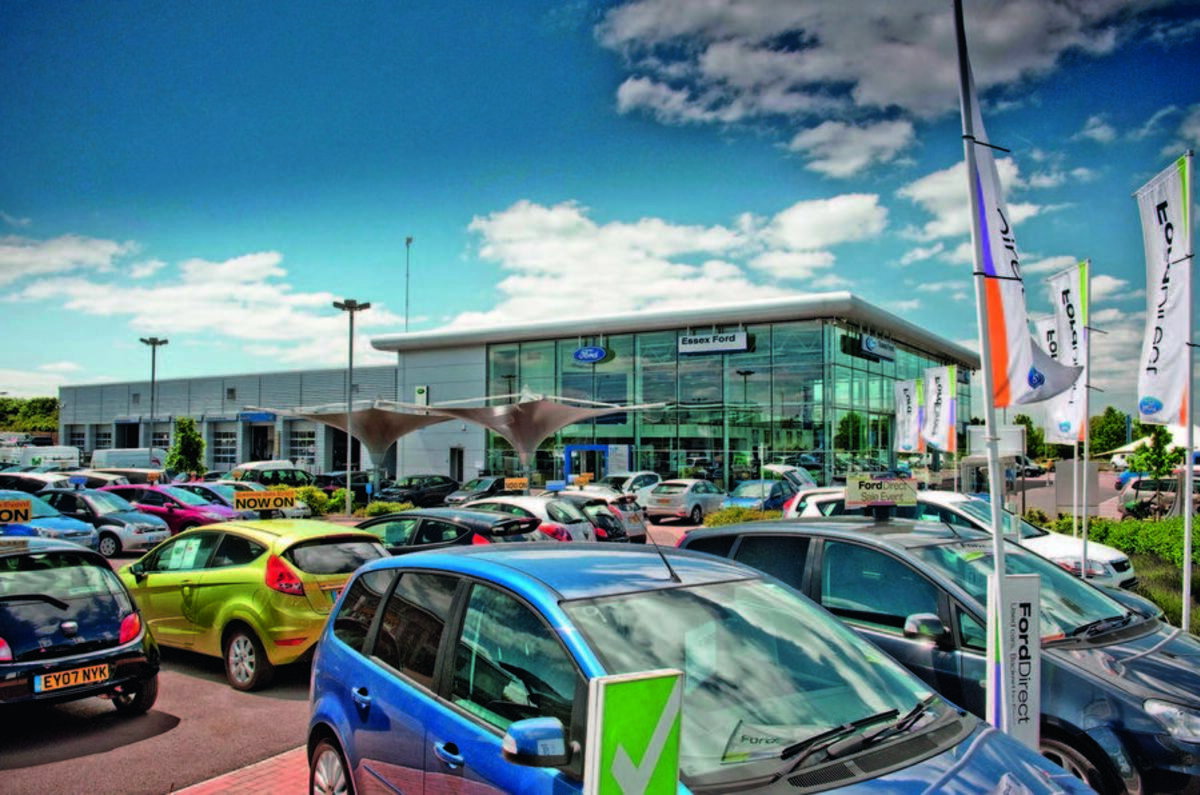UK car registrations dropped by a modest 2.9% in October year on year, according to the Society of Motor Manufacturers and Traders, following a tumultuous few months for the car industry.
In August, sales rose by 23.1% as manufacturers tried to shift as much stock as possible before new WLTP emissions regulations were introduced in September.
Then, in September – the second most important month for car sales after March due to the numberplate change – registrations fell by a massive 20% because of those regulatory changes, which meant that many car makers had not managed to test all of their models under the new rules.
Now, the market appears to be balancing out, though the 2.9% fall is still being blamed on the same issue. The SMMT said “model changes and backlogs at test houses conducting tough new WLTP emissions certification continued to cause shortages across some brands”.
While registrations are down 2.9% to 135,599 units in October, year-to-date, the car sector is down 7.2% compared with the same period last year.
The SMMT said that “some pull-back is hoped for during the remainder of the year as current supply issues ease, enabling manufacturers to cater for pent-up demand on certain models”.
The demise of diesel-powered cars continued, with registrations falling 21.3% in October, while those of petrol models increased by 7.1%.
Alternatively fuelled vehicles, including electric and plug-in hybrid models, grew by 30.7%, with 10,597 units sold.
However, this sector is expected to be hit imminently, following the government’s announcement that it will reduce its plug-in grant for electric cars and withdraw it completely for plug-in hybrids. The SMMT said that due to lead times, the full impact of that move may not be seen for several months.
SMMT chief executive Mike Hawes said: “Vehicle excise duty upheaval, regulatory changes and confusion over diesel have all made their mark on the market this year so it’s good to see plug-in registrations buck the trend. Demand is still far from the levels needed to offset losses elsewhere, however, and is making government’s decision to remove purchase incentives even more baffling.
“We’ve always said that world-class ambitions require world-class incentives and, even before the cuts to the grant, those ambitions were challenging. We need policies that encourage rather than confuse. Government’s forthcoming review of WLTP’s impact on taxation must ensure that buyers of the latest, cleanest cars are not unfairly penalised, else we will see older, more polluting cars remain on the road for longer.”
The Ford Fiesta remains the top seller in the UK, selling 84,890 units year-to-date and 5,564 in October. The Volkswagen Golf is the second-best-seller in October, followed by the Mercedes A-Class and Volkswagen Tiguan.
Read more




Join the debate
Add your comment
JLR October registrations
In a market declining 2,9% Land Rover is on +31.7% and Jaguar + 82% resulting in a best ever combined monthly market share of 6.68%. I know a lot of those registrations will be demos and company cars for JLR staff but this looks encouraging for a company supposedly in difficulty. October figures for the USA are good too.
Brilliant, isn't it?> Any
Brilliant, isn't it?> Any unwanted market interference and we get the 'nanny-state' comments. But when the industry wants incentives and bailouts (paid for by taxation) it's fine.
Like the bankers - double-standards
Wheelman
tesla have absolutely not shown it’s possibie to make a profit - they made an operating profit in one quarter. Now, they might continue making operating profits from now on (that’s not certain) but they haven’t made an overall profit in any period (ie after deducting financing costs - and that’s with lots of subsidies and a one off fantastically cheap purchase of a factory complex that saved a fortune) and, to date, have made thumping great accumulated losses.
oop north wrote:
FACTS:
Tesla: Total loans, loan guarantees, and bailout assistance: $0.5 billion
Fiat Chrysler: Total loans, loan guarantees, and bailout assistance: $17.6 billion
General Motors: Total loans, loan guarantees, and bailout assistance: $50.3 billion
Ford Motor Co: Total loans, loan guarantees, and bailout assistance: $27.6 billion
However, it would be fair to say that Tesla has been a more subtantial benefitiary from various tax credits that could equally have been won by any other car company had they offered an EV product to incent consumers moving to electic cars.
wheelman wrote:
Well said wheelman. One more point about tax credits etc. Tax is used to pay for things like the NHS to treat cancer caused by diesel fumes etc so perhaps it's only fair BEV should pay less of it